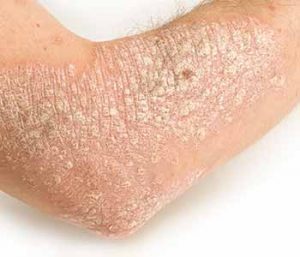E czema is more common than what many people would like to believe. If statistics are any indication, millions of people around the country suffer from this condition today. The unexpected flare-ups of eczema can have a debilitating impact on your daily life.

People suffering from eczema are at an increased risk of allergic conditions such as asthma, food allergies, and hay fever, among others. Even though medical science is yet to find the connection, it has been observed that these patients are also susceptible to cardiovascular diseases and obesity. Experts believe that it may be due to the inflammation caused by eczema that subsequently impacts the patients’ eating and sleeping habits.
If this wasn’t enough, eczema patients are also candidates for various kinds of infection. The sufferers of eczema are vulnerable to bacterial skin infections, such as impetigo that lead to cellulitis and development of red facial sores. Patients can seek eczema treatment in Huntington with an experienced dermatologist.
Weaker Immune System
 Eczema sometimes impacts the immune system as well. As a result, patients are at an additional risk of internal infections, such as urinary tract and upper respiratory tract infections.
Eczema sometimes impacts the immune system as well. As a result, patients are at an additional risk of internal infections, such as urinary tract and upper respiratory tract infections.
Eczema patients may also suffer from gradual degradation of mental health, because of the persistent feeling of depression and anxiety caused by eczema symptoms. These conditions are further intensified due to poor sleeping patterns, one of the many symptoms of eczema.
The skin itching usually intensifies at night and keeps patients awake, making it impossible for them to have sound sleep. This problem puts the patients in a vicious cycle, as lack of sleep worsens the eczema symptoms, further affecting their sleep.
Long-time sufferers of eczema are not just enduring lack of sleep and other such unpleasant symptoms, but also face the risk of developing cardiovascular problems because of its snowballing effects on the body. Experts recommend that the treatment for eczema should not only focus on alleviating short-term symptoms, but also manage them in the long run.
Even though this condition can be agonizing for the patients, luckily, there are treatments available. There are also many new treatments in different stages of development that hold promise. The best way to stay healthy while dealing with eczema is to prevent the symptoms from flaring up. For most forms of eczema, you can narrow its management down to these basic steps:
We Are always available to help you.... Call Us Today
New Patients: (631) 417-3300 | Existing Patients: (631) 421-4398 Book an AppointmentKnow your Triggers
- Don’t underestimate the importance of regular cleansing and moisturizing of your skin.
- Use the prescribed medications or over-the-counter medicines appropriately as directed by your dermatologist.
- Keep an eye out for indicators of infection such as pain, redness, pus-filled bumps etc. on the skin.
Other Things You can do to Manage Eczema Symptoms
- Visit your dermatologist periodically to review your condition and receive the latest effective treatments and advice.
- Learn to manage your stress more effectively by using the right coping mechanisms and stress management techniques. You can do this on your own, or seek help from a professional.
- Ask for guidance and tips from other people who are already dealing with eczema.
- Do not scratch the inflamed skin. You should also avoid contact with substances that may exacerbate the skin condition. Wear soft and breathable fabrics to prevent inflaming eczema.
These tips are helpful in controlling your symptoms. However, for some people, even when they follow all these instructions, their eczema still aggravates. Eczema is an erratic disorder that can affect your life in more ways than you can imagine, despite making all the right efforts.
 Treatments and Medications for Eczema
Treatments and Medications for Eczema
Eczema treatment depends on the type and the severity of symptoms. Even though the disease has no cure, there are many solutions, such as lifestyle change, OTC medication, topicals, and oral prescription drugs, among others.
The best way to deal with your condition is to educate yourself about the treatment options with the help of your dermatologist, and make an informed decision based on your unique condition. Share your problems with the dermatologist during an eczema consultation. Visit a good dermatologist for eczema treatment in Huntington.









